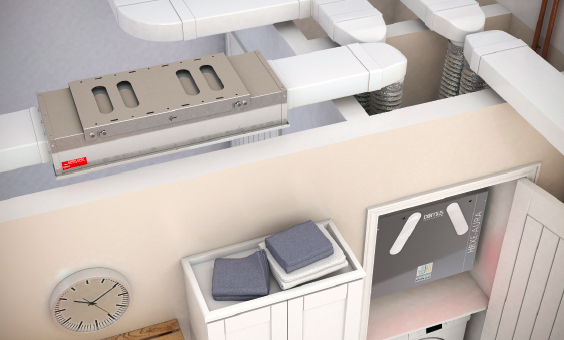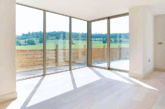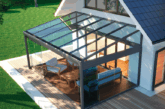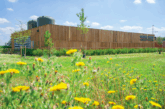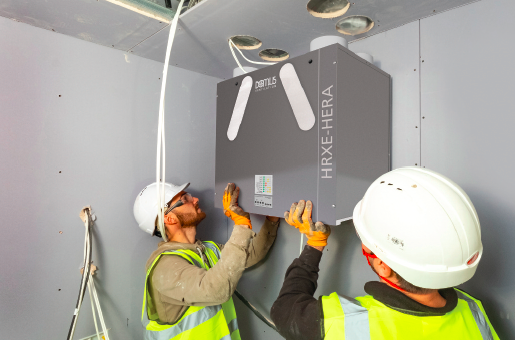
Paul Williams, Domus Ventilation Product Manager explains why housebuilders and architects should be specifying MVHR systems in their new builds.
Valued at $106.69 million in 2022, the Mechanical Ventilation Heat Recovery (MVHR) UK market is predicted to reach $235.34 million by 2030. This extraordinary growth is being driven by increased awareness about the benefits of MVHR, as well as the adoption of these systems to comply with the latest uplift to Building Regulations.
MVHR systems take a whole house approach to ventilation, combing supply and extract ventilation in one system. They extract the stale air from wet rooms (kitchens, bathrooms, utility spaces) within a property via ducting, transferring the heat from that air to the fresh air being drawn into the building via a heat exchanger. Domus Ventilation’s HRXE MVHR range recovers heat with up to 95% efficiency, making it highly effective. The filtered, pre-warmed air is then distributed around the home. If you’re yet to be sold on MVHR systems, then consider these key benefits:
- Health
In the UK, we spend 80-90% of our time indoors. The air that we breath indoors is therefore just as – if not more – important than the air we breathe outdoors. Sources of indoor air pollution are widespread, from cooking, cleaning products and furniture to external emissions entering our homes. In the winter months you also have condensation and mould to contend with. Poor indoor air quality has been linked to an increased risk of respiratory and cardiovascular illness, cognitive impairment and certain cancers. England’s Chief Medical Officers Annual Report 2022 Air Pollution stated: “The role of ventilation is central to reducing unavoidable indoor air pollution.” MVHR systems are the most effective ventilation method for our homes as they both extract stale air and supply filtered ‘fresh’ air to key rooms, such as bedrooms. - Comfort
Breathing in poor quality air is not only unhealthy, it’s unpleasant. As stale air is usually the result of a buildup of chemicals (especially VOCs) and humidity, our homes feel ‘stuffy’ and can have an unpleasant smell. MVHR systems are continuously on, removing that stale, humid air and its undesirable odours. Furthermore, during colder months they take the chill out of the supply air by passing it through a heat exchanger where the outgoing air’s energy is extracted and transferred. In the summer months, an automatic 100% thermal bypass allows in cooler, fresh, filtered air without warming it. - Energy efficiency
By reusing the outgoing air’s heat to temper the incoming air, MVHR systems help reduce the home’s heating load. The Centre for Sustainable Energy estimates heating costs can be reduced by around 25%. Whilst MVHR running costs are dependent on the property size, building fabric, occupant lifestyle etc., they are inexpensive to run. To ensure maximum energy efficiency is gained from an MVHR system though, it’s important to correctly size the unit, use good quality ducting (Domus Ventilation ducting has been third party tested for end-to-end system performance), and correctly install and commission the units. - Structural integrity
If not dealt with, trapped condensation can lead to timber decay and can have a detrimental effect on insulation. More often though, it leads to mould growth on surfaces of walls and furniture. Removing large areas of mould is not easy and can be costly, especially when redecorating is required and furniture has to be replaced. What’s more, as the source of the mould hasn’t been addressed, it’s very likely it will return. MVHR systems remove humidity, reducing levels of condensation and preventing mould from forming. - Building Regulations
Changes to Building Regulations ‘Approved Document F, Volume 1: Dwellings’ (ADF1) came into effect on 15th June 2022. Across all sizes of properties, minimum ventilation rates were increased. In the case of larger properties with five bedrooms, the minimum ventilation rate went from 29 to 43l/s. To achieve these new ventilation rates, mechanical ventilation systems such as MVHRs are the most proficient option. - Value-add
The public are more aware than ever before of the importance of good air quality. Stories of extreme overheating in properties located in urban heat islands are also making national news. For housebuilders, an MVHR system can therefore be an attractive proposition to home buyers, providing them with good indoor air quality, added comfort and energy efficiency. These six points all provide a powerful argument for including MVHR systems into your new residential developments. So, if you haven’t really considered MVHR systems previously, isn’t it time to think again? Domus Ventilation is a manufacturer of market-leading ventilation systems that save energy and improve indoor air quality.

